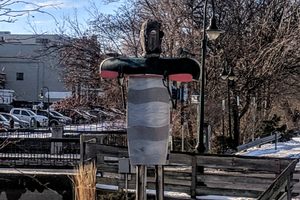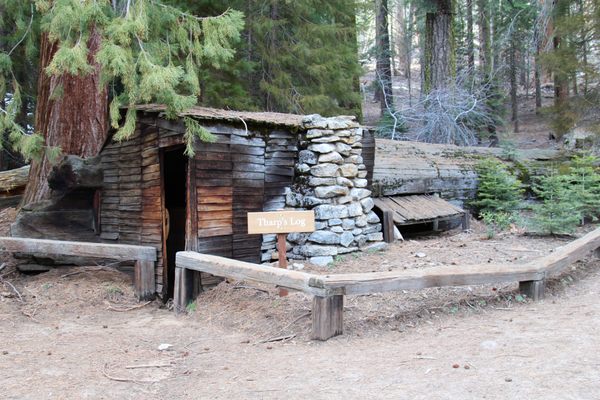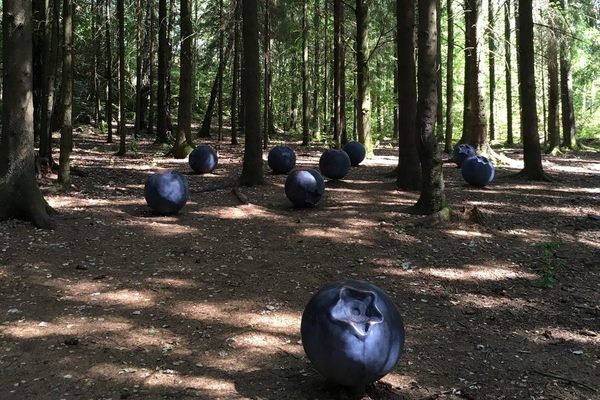About
Ever wondered why some trees are so misshapen? People have been warping trees for years, and continue to do so today. Sometimes, a tree's odd shape is the result of human intervention for the purposes of wayfinding and navigation. By altering their natural growth pattern as a young sapling, Native Americans used trail marker trees as floristic road maps to pinpoint key travel routes and important landmarks.
On the site of the former Grand Traverse County Fairgrounds, now known as Civic Center Park, stands a protected Indian Trail Marker Tree. Such trees can occasionally still be found in forests and woodlands, but they are seldom formally protected from potential vandals or others with ill intent. Many trail maker trees were destroyed when forests were cleared for agricultural purposes, while others have been lost to development.
This particular tree in Traverse City, Michigan, is estimated to be approximately 200 years old. Local historians have been trying to protect such trees since before 1939. In 2016, updated protective fencing was added around the tree, along with a new stone historic marker signifying its importance to Native American history in the Great Lakes Region.
Related Tags
Know Before You Go
Parking is available in front of Howe Ice Arena. The tree can be found by following the Civic Center Trail to the northeast quadrant of the park. It is located south of Munson Avenue (US 31) and the bright orange Norte' Wheelhouse and east of Howe Ice Arena.
Published
March 6, 2019
Sources
- http://greatlakestrailtreesociety.org/
- https://upnorthlive.com/news/local/traverse-city-parks-and-rec-celebrate-native-american-history-with-marker-tree
- https://www.canr.msu.edu/news/trees_provide_historic_navigation_aid
- https://www.record-eagle.com/news/local_news/woman-retraces-father-s-steps-to-indian-marker-trees/article_7c2558bc-76b2-5eb9-ab1c-e316faee1fca.html
- https://www.revolvy.com/page/Trail-trees






















